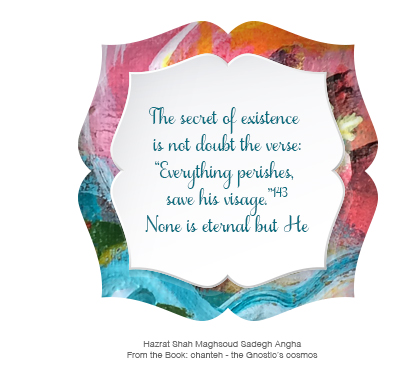The Reality of Worship
The four principles of servitude are:
Devotion to their Lord,
A committed heart,
Truthful words,
and Rightful deeds.
Do not serve God as a beggar seeking alms.
Amir al-Mo’menin Ali (peace by upon him), the King of the believers, has said: "I did not worship you for the promise of paradise, nor the fear of hell, but in greatness I saw you, then I worshipped."
On the meaning of this, the great Sufi Sheikh Bahauddin Mohammad Ameli (953 - 1030 AH/ 1545-1620 AD), a disciple of Sheikh Mohammad Mo’men Sabzevari has said:
"For the true believer of heart 'tis demeaning for sure,
To hope that devotion of God should a return procure.
The famed saying 'I did not worship thee' O seeker,
From the king of men learn, and be meeker.
He that for his deeds seeks gain is blind,
For obedience in such expectations a mercenary will bind.
Those then that serve and obey for bounty’s sake,
Rob devotion of its noble grandeur in their wake.
He who seeks recompense, for being devout,
Devout call him not, of worship he’s without."
Hazrat Shah Maghsoud Sadegh Angha states: "Man’s heart is for tawhid (to declare that God is One), his words for shahadah (affirmation of God), and his body for ibadah (devotion to God)." In devotion he must obey these four conditions:
Ilm (knowledge) that will keep him from wrongdoing,
Zikr (remembrance) that will be his companion and friend,
Fikr (pure thought) that will be his traveling companion on this journey,
Zohd (self-discipline) with which he will renounce all other than God.
|
Hazrat Molana Shah Maghsoud Sadegh Angha, Al-Salat: The Reality of Prayer in Islam (Riverside, CA: M.T.O. Shahmaghsoudi Publications, 1998), 10-12. |
